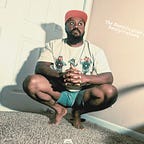The Church’s Other Identity Crisis (Part 1)
In the three years since the onset of the COVID-19 Pandemic it can be said that the Church has gone through an identity crisis; but even if you are little more than a novice student of church history (and I am) you may be able to see that from the beginning the church has always had an identity crisis. The overlooked gentile widows in Acts 6 and the confrontation between Paul and Peter over Peters refusal to eat with Gentiles in Galatians 2 can be described as issues stemming from cultural and religious identity. The Church’s identity crisis didn’t begin with COVID-19; it didn’t even begin with the Protestant Reformation. It began among some of the earliest saints who in their own defense, were human and wrestling with a still very much new gospel. Now this gospel and the charge to take its message out into the world among every nation (Matthew 28:19–20) each with their own cultural worldview, was intended to create an identity crisis of its own; a transformative one in the heart. However, the church’s other identity crisis, a mix of cultural and sociopolitical strife paired with intense theological discord, has seemingly taken center stage in recent years. The Pandemic, and its aftermath, did little more than reveal the depth of this crisis in the modern era and the increasingly polar effect it has had on the Christian world to a wider audience.
In a few months I am set to move to the great state of West Virginia in order to learn and immerse myself in rural ministry in its own setting. While the prospect of moving to a place I've never been to and becoming more equipped for service in God’s Kingdom is exciting, it has not come without reservations. It is not lost on me that I am a person of color who wants to learn and do ministry in places where the vast majority of people don’t look like me. While I recognize that my identity isn’t rooted in my skin color but in Christ, and I try to lead with that in my life, I recognize that other people may not see it that way. Before I’ve even packed a bag I've already experienced fears of being unable to relate and being rejected. To be clear, I'm not projecting racism and intolerance onto people I’ve never even met, but rather I’m being honest about some of the fears that stem from my own biases and insecurities. Like everyone else, I too am in constant need of Christ’s redemptive power. Part of how we reduce the polarizing effects of the Church’s identity problem is confronting the biases and insecurities within ourselves individually that hamper our ability to be unified with others in the body of Christ.
